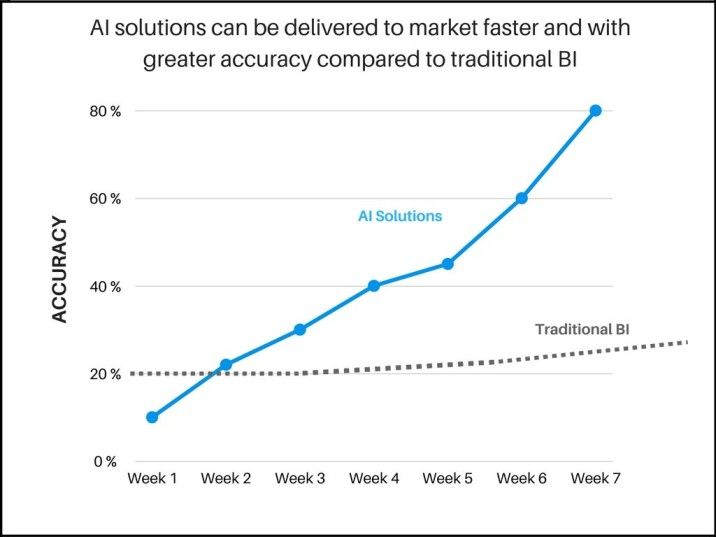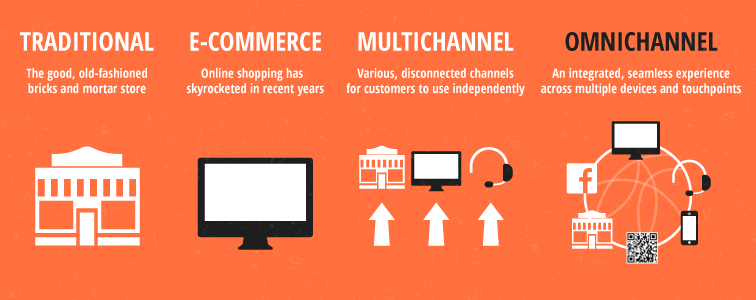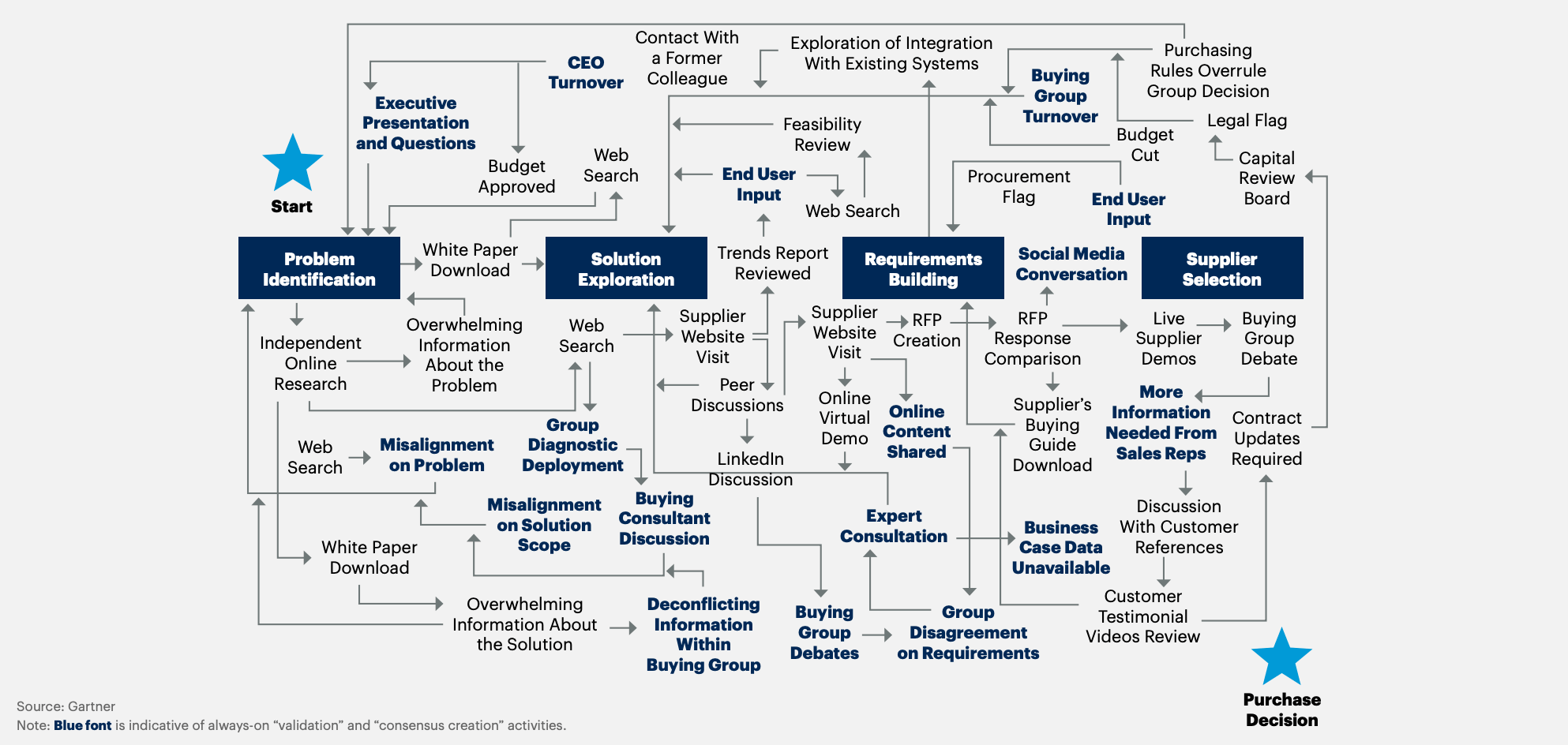8 Crucial B2B Sales Trends in 2023
B2B sales has changed in 2023 and there are a ton of novelties. And AI is playing the most crucial part this year. Find out what new trends await us in 2023 and how to ride the wave of AI in B2B sales.
— Propoze

As we enter 2023, new B2B sales trends emerge while the B2B sales landscape rapidly evolves, driven by advancements in technology, changing buyer behaviors, and the aftermath of the COVID-19 pandemic.
As a result, sales organizations must adapt to these changes to remain competitive and achieve growth.
In this blog post, we will explore eight emerging major trends that are expected to shape B2B sales in 2023 and beyond. From the rise of value-based selling to the increasing importance of customer success, these trends have the potential to significantly impact the way B2B companies sell their products and services.
Understanding and embracing these trends will be critical for sales organizations looking to succeed in the years to come.
B2B Sales Trends to Look Out for in 2023
B2B sales trends have undergone significant changes in recent years, and the pace of transformation shows no signs of slowing down in 2023.
As businesses adjust to a rapidly changing environment, it's essential to stay up-to-date with the latest B2B sales trends to stay competitive. Here are seven top B2B sales trends that are likely to shape the industry in 2023.

#1 The most important B2B sales trend: AI is taking over
Artificial intelligence (AI) is quickly transforming B2B sales, and it's becoming more important than ever for businesses to embrace this trend to stay competitive.
AI-powered tools are helping sales teams streamline their workflows, automate time-consuming and repetitive sales tasks, and gain invaluable customer insights.
One key benefit of AI in B2B sales is the ability to personalize the entire selling experience for your customers.
AI tools have become so advanced they can help you understand the unique needs and pain points of your customers. In turn, this allows you to tailor your approach and messaging, and achieve maximum sales effectiveness.

Above, you can see a phenomenal chart from LXA that shows how accurate and efficient AI solutions are. AI is improving at a stunning rate, and we can implement in B2B sales in many ways.
A great use case of AI in B2B sales is lead generation. Artificial intelligence tools allow us to identify high-potential leads and prioritize sales efforts accordingly. How is that possible?
AI is incredibly smart and it leaves less room for human error. AI-powered tools can easily identify patterns and trends in prospect data that human analysts may have missed, making sales research easier than ever.
AI sales revolution doesn't stop here, making great changes in sales forecasting too. Currently, there are several AI-powered platforms that can handle huge amounts of sales data, market trends, and other factors to predict future sales with incredible accuracy.
Here's a short list of these AI-powered platforms that can help you with forecasting:
These new findings can help you make new informed decisions on resource allocation and strategy. And it all happens almost in an instant, as AI models keep evolving by the minute.
All in all, the biggest B2B sales trend of 2023 is by far - artificial intelligence. It has changed B2B sales entirely, enabling sales reps to personalize the selling experience, identify high-quality leads, and shorten their sales cycles.
#2 Real-time omnichannel sales
Every year we keep finding new reads on how the business environment is getting increasingly fast-paced. But in 2023, this started to culminate with the rise of AI.
New apps and platforms keep showing up every day and users' attention has never been lower.
Today, buyers expect to be able to interact with your sales representatives on their own terms, using their most convenient channels.
This is the reason why omnichannel sales have been at the forefront for the last several years.
Omnichannel is not the easiest concept to explain, and not nearly easy to implement. But the team at SnapRetail came up with a great visual to compare it with other models.

Omnichannel sales allows your sales reps to engage with buyers across all communication channels and touchpoints they regularly use.
For customers, the benefit of omnichannel sales is straightforward. They get a frictionless, personalized buying experience.
With the help of AI sales tools, you can gather data from countless sources (social media, email, live chat, chatbot, etc.) and gain a total understanding of what your buyers need and want.
The next benefit of real-time omnichannel sales lies in the ability of the sales and marketing team to quickly respond to all inquiries and requests. Real-time communication tools like chatbots and messaging platforms (Telegram, WhatsApp, Messenger,...) will help you provide customers with immediate responses and help them move down through your sales funnel.
By implementing omnichannel sales strategies, you'll also be able to identify potential roadblocks in the customer journey.
It all comes down to mining customer data from various digital channels and digital touchpoints. This way, we can find out where our buyers are struggling and what kind of frustrations are they experiencing.
To sum up, omnichannel sales is a B2B sales trend that will continue growing in importance beyond 2023.
It promises revenue growth and competitive advantage through data collection and real-time communication efforts - and that has become a widespread practice through B2B in general.
#3 Sales teams implement value-based selling
We can most certainly say that value-based selling is an awesome sales model that's becoming increasingly popular. In fact, we expect to see a lot of B2B sales teams using this approach in 2023 to help them stand out and drive more growth.
Here's a list of 7 key principles of value-based selling. You may want to check this before you take any next steps regarding value-based selling.
Value-based selling is based on figuring out what are the latest customer expectations (goals, pain points, needs, wants) and then showing how your product or service can help them achieve their goals.
The focus of this approach is on value exchange.
Instead of just another expense, by implementing value-based selling, your products, and services are shown as smart investments. When you demonstrate the real value of your offer, your buyers will feel good about their decision to buy your product or service. This leads to creating proper brand awareness and long-lasting relationship building.
Another great benefit of value-based selling is that it encourages your sales and marketing teams to collaborate more closely. When your sales and marketing pros collaborate on value-based strategies and communication, there is an enormous chance for them to create messaging that speaks directly to your buyer's needs.
In turn, this equals higher conversions and more revenue growth.
To take advantage of this important trend, you'll need to have a deep understanding of what your buyers prefer and what are they looking for in a product or service. Again, this leads to using of data and analytics tools (powered by artificial intelligence) to gain new insights into customer behavior and preferences.
To conclude, value-based selling is nothing new, but just an improved sales approach that takes focuses on delivering the most value by solving customers' real problems.
This correlates with the replacement of customer support with customer success. It may be a simple change in rhetoric, but the underlying motive is different. Instead of supporting customers on how to use your product properly, the focus shifted to helping customers succeed and reach their goals.
To set yourself apart from the rest of the competition, you may want to aim your efforts at creating strong customer relationships and invest in buyer research. The more you know about their real pain points, the better you can communicate how your product or service helps them reach their goals.
The goal is not to sell but to help.
#4 Sales and marketing teams implement AI personalization
Personalization is a key component of B2B sales and marketing for several years, but with the rise of AI, there is now an even bigger emphasis on this trend.
More accurately, AI-powered personalization tools had the biggest impact on this trend. Such AI-powered tools allow sales representatives and marketing teams to deliver relevant messaging to each buyer.
AI-powered personalization tools differ from previous generations of personalization tools in several key aspects.
AI-powered personalization tools are different from traditional ones because they use machine learning algorithms to analyze data and identify patterns that would be difficult for humans to spot.
This allows them to deliver more timely and personalized experiences to customers.
In contrast, traditional personalization tools rely on simple rules and heuristics to segment customers and provide tailored recommendations or offers. They're good, but they can be slower to adapt to changes in customer behavior and may not be as accurate as AI-powered tools.
One of the biggest advantages of AI-powered personalization tools is that they can gather and analyze data in real-time. This means they can respond quickly to changes in customer behavior and preferences, which can help improve engagement and drive sales.
Additionally, AI tools can leverage a wider range of data sources, such as social media activity and browsing behavior, which can provide a more comprehensive understanding of customer preferences and behavior.
Overall, AI personalization tools offer a more sophisticated and efficient way to deliver personalized experiences to customers. They never stop learning and improving, which means they have the potential to help you stand out in a crowded market and build stronger relationships with your customers.
Here's a list of AI-powered personalization tools you may want to look into:
By analyzing buyer behavior and purchase history, AI-powered personalization tools can make the marketing team and sales team identify opportunities to offer complementary products or services on the same page as the average customer, helping to drive revenue growth and build long-term customer relationships.
To conclude, the trend of AI-powered personalization of account-based marketing and sales efforts is likely to continue growing in importance in 2023 and beyond.
#5 Sales process efficiency is a huge focus
The importance of efficiency is impossible for sales leaders to ignore. In 2023, we'll see even more sales teams doubling down on streamlining their processes and trying to speed up their sales cycles.
Sales productivity tools play a big role in this initiative. With sales enablement platforms, for example, sales reps can spend more time on revenue-generating activities that really move the needle. Without such tools, they'd be bogged down in lead qualification, content management, and similar time-consuming processes.
Not to mention, fast and precise internal communication and collaboration are incredibly important for the success of any team in 2023. With so many reps working remotely, having the right tools and processes that can keep everyone on the same page is more vital than ever.
This is the main reason why sales teams are increasingly turning to CRM platforms, project management tools, and other tools that can help them better organize, share information, and function better as a unit.
Still, sales efficiency isn't just about working smarter - it's about working with the right data. The data-driven approach in sales has turned out to be a huge success. Reps can easily gain crucial insights into customer behavior and learn about their preferences, which is a prerequisite for any good sales communication.
So, in 2023, the most successful teams will be the ones that focus on efficiency, automation, and sales data. This will help them massively speed up their processes and drive more revenue for their business.
#6 Sales reps are implementing sales automation
Sales automation is winning over B2B sales. We're seeing a huge number of sales reps embracing automation tools this year. Sales automation in general refers to the use of software that can automate various aspects of the sales process, such as:
- Prospecting
- Lead generation
- Lead qualification
- Customer acquisition
There are 3 concrete benefits to using sales automation tools in B2B sales.
Firstly, it provides your sales reps with more time to focus on strategic, revenue-generating activities. For example, they could be actively interacting with customers and building relationships, or closing deals. However, the goal is to automate as many repetitive sales tasks and processes you can.
Secondly, sales automation allows you to improve the quality and consistency of your sales process. This is achieved by standardizing and automating key processes (lead nurturing, lead qualification). This way, we can provide all prospects with a consistent customer experience, further building our trust and credibility.
Finally, through sales automation, we gain more visibility into our sales processes. If we use automation tools such as CRM or a sales analytics platform, our reps can easily gain insights into our customer behavior and their preferences. This clears the first step towards fully-tailored messaging for every customer.
Below is an image depicting a buyer's journey. If that seemed complex to you, imagine how your B2B customers feel. Your sales team's role is to help your customers navigate through this complex journey and reach their end goal.
This image is one of the best ways to explain why sales automation is incredibly valuable and much needed in B2B sales today.

All in all, sales professionals are largely adopting sales automation and the adoption is poised to grow in importance by the end of 2023. The benefits are very clear - more time, better productivity, and better results.
To top it off, here's a guide on how to automate your sales processes!
#7 Video is the go-to content format
The video has taken over B2B sales as the most popular content format. And today, over 95% of buyers say that video plays a crucial role in their purchasing decision.
The reason for this is simple - video offers a unique way for sales reps to build personal connections with their prospects.
Through video, your sales reps can now create a more engaging and personalized experience for prospects.
Also, if you want to communicate complex information in a simple and easy-to-understand manner, video content is your safest bet. This alone makes video a valuable content format for B2B sales reps.
Just imagine how complex B2B products and services get. It gets complicated, products tend to have a large number of features and they all serve different purposes. Communicating the benefits of your product through image posts or text-only posts might not do the trick.
But what can help is creating video tutorials, onboarding videos for new customers, webinars, video guides, and so on.
The video has taken over the world, not just B2B sales.
Another massive benefit of video content is its shareability. Your reps can create videos and use them as a form of social selling. They can share it on social media platforms, post it on their private LinkedIn profiles, answer questions with videos rather than text, and so on.
As video accounted for 82% of all internet traffic in 2022, it's safe to say that video is here to stay as the most powerful content format today.
And when we look further down the road, the video seems to be only growing in popularity. 5G networks have become more prevalent, allowing users to both upload and download videos at ludicrous speeds. And whichever app your target audience opens (Facebook, Instagram, Twitter, LinkedIn, TikTok..), they'll be surrounded by videos.
All in all, if you're not doing video as a part of your B2B sales strategy, 2023 may be the year you start implementing it.
And if you're new to this, here's a guide on how to create and use videos for B2B sales!
#8 Customer success > Customer support
Customer success has become critical for business growth. It's no longer enough to produce high-quality content and promote it to your target audience. Customers want to know more and if they aren't sure your solution is the best fit for them, they won't settle.
According to OutboundEngine, acquiring a new customer can be 5 times more expensive than retaining an existing one. As your sales cycles are getting longer and more decision-makers are getting involved, you'll need to start viewing customer success as a revenue-generating tool, not an expense.
The pandemic and the impending economic crisis have made customer success even more important. Shifting your focus towards customer success will help you set the right foundations for a positive and holistic customer experience.
This means that you'll be proactively reaching out to your customers, educating them about your products and services, and ultimately, showing them how to get the most out of your products. Show them exactly what to do in specific real-life situations.
This will not only reduce churn rate, but it will increase your customer satisfaction and boost your revenue. The role of sales and success teams will now include personalization of product offers so they appeal to the buyers' specific workflows. But it's much more than that. This is all about building long-lasting relationships.
You'll need to be attentive to your buyers' needs, check in with them from time to time, and try to find out more about how their business is doing.
It's always good to have successful businesses as your customers. But if they're still not there, helping them reach their goals with your product is something that will most certainly make them loyal to your business.
Such loyal relationships can outlast any crisis.
What's your go-to sales strategy for 2023?
The B2B landscape is continuing to evolve, and there are new strategies you may want to think about. Whether you're focusing on digital, embracing omnichannel, or doubling down on your AI strategy, you'll need to determine which approach will your customers prefer.
In this article, we've talked about 8 major B2B sales trends, but if we were to say what our thoughts are on the most powerful trend - it's AI.
Artificial intelligence tools have conquered 2023, as ChatGPT appeared in late 2022 and started the AI revolution. Soon, every sales tool we encounter will have an AI component to some degree. Our warmest recommendation is to explore AI and the possibilities it provides, as it can get extremely helpful when talking about B2B sales.
And when talking about B2B sales, we must mention Propoze, a sales automation tool allowing you to create sales proposals in just a few clicks.
Click on this link to get started with your Propoze account.
Finally, if you're looking for help with your B2B sales efforts, we'd love to help. Reach out to us at support@propoze.app and we'll get to you with a solution as soon as possible.
Follow us on our LinkedIn, Twitter, and Instagram accounts! We post regularly on proposal and sales-related topics.